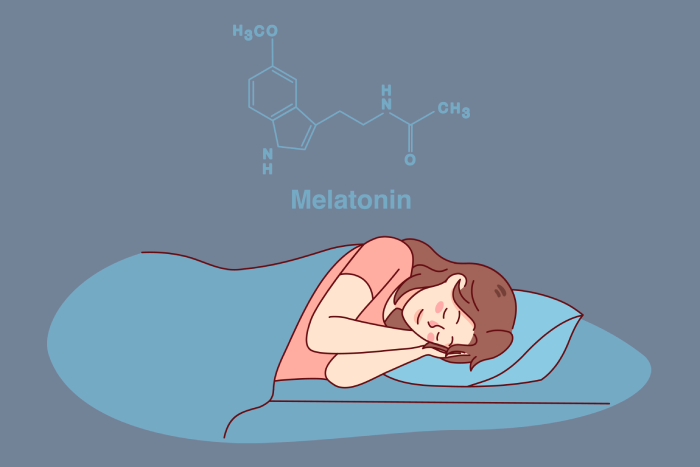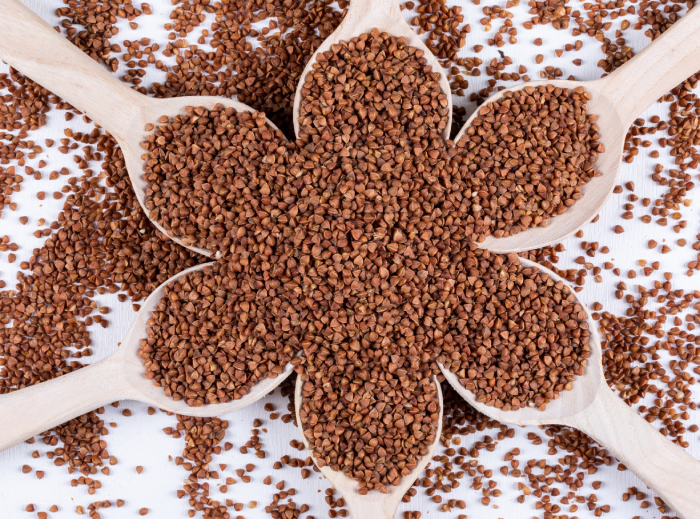Hey there, fellow sleep enthusiasts! 👋 Are you tossing and turning all night, counting sheep until the cows come home? Well, buckle up buttercup, because we’re about to dive into the wonderful world of melatonin spray – your potential ticket to dreamland!
Let’s face it, in this fast-paced, always-on world, getting a good night’s sleep can feel like trying to catch a greased pig. But fear not! Melatonin spray might just be the superhero your sleep schedule needs. So, grab your favorite blanket, and let’s snuggle up to some knowledge!
What the Heck is Melatonin Anyway?
Before we get into the nitty-gritty of melatonin spray, let’s break down what melatonin actually is. Melatonin is like your body’s internal DJ, dropping the beat for your sleep-wake cycle. It’s a hormone naturally produced by your pineal gland, telling your body when it’s time to hit the hay.
But here’s the kicker – our modern lifestyles are like that annoying neighbor who keeps messing with the DJ’s equipment. Blue light from screens, irregular schedules, and stress can all throw our melatonin production out of whack. That’s where melatonin supplements, like our star of the show – melatonin spray – come in to save the day (or rather, the night).
Melatonin Spray: The Cool Kid on the Block
Now, you might be thinking, “Why spray? Can’t I just pop a pill?” Well, my curious friend, melatonin spray is like the James Bond of sleep aids – smooth, fast-acting, and effortlessly cool. Here’s why:
1. Quick absorption: Sprays are absorbed through the mucous membranes in your mouth, bypassing the digestive system. It’s like a VIP pass to your bloodstream!
2. Easy to use: No water needed, no pills to swallow. Just a quick spritz and you’re good to go.
3. Precise dosing: Many sprays come with metered doses, so you know exactly how much you’re getting. No more “Oops, did I take one or two pills?”
4. Portable: Toss it in your bag for those nights away from home. Sleep on the go? Yes, please!
The Goldilocks Zone: Finding Your Perfect Dose
When it comes to melatonin, it’s not about going big or going home. In fact, sometimes less is more. While you might see products boasting 20mg melatonin or even 10mg melatonin, many sleep experts suggest starting with a much lower dose.
Think of it like seasoning your food – you can always add more, but you can’t take it away once it’s there. Start with a low dose, maybe 0.5-1mg, and work your way up if needed. Remember, we’re aiming for the Goldilocks zone – not too much, not too little, but juuuust right.
Liquid Melatonin: Not Just for Adults
Now, I know what you’re thinking – “But what about the kiddos?” Well, hold onto your sippy cups, because liquid melatonin for kids is a thing! But before you go spraying your little ones, remember that children’s sleep needs are different from adults. Always consult with a pediatrician before giving any sleep aids to children.
For the grown-ups, liquid melatonin offers the same benefits as the spray, just in a different form. It’s especially handy for those who prefer to mix their melatonin into a bedtime beverage. Melatonin tea, anyone?
Melatonin Alternatives: Because Variety is the Spice of Life
While melatonin is the star of our show, it’s not the only player in the sleep game. There are plenty of melatonin alternatives out there for those who want to mix things up:
1. Valerian root: This herb has been used for centuries to promote relaxation. Some even pit valerian root vs melatonin in the battle for sleep supremacy.
2. Chamomile tea: A classic bedtime beverage that can help calm your mind and body.
3. Lavender: Whether in oil form or as a pillow spray, this fragrant flower is known for its soothing properties.
4. Magnesium: This mineral plays a crucial role in regulating sleep. Some people swear by the combination of melatonin and magnesium for a knockout punch to insomnia.
Melatonin for More Than Just Sleep

Hold onto your pajamas, folks, because melatonin isn’t just a one-trick pony. This versatile hormone has been studied for a variety of uses beyond just helping you catch some Z’s.
Melatonin for Anxiety: Chill Out and Sleep Tight
If your mind races faster than Usain Bolt when you hit the pillow, you’re not alone. Many people report using melatonin for anxiety, and there’s some science to back it up. Melatonin may help reduce anxiety by promoting relaxation and regulating your body’s stress response.
But remember, while melatonin might help take the edge off, it’s not a replacement for proper anxiety treatment. If you’re struggling with anxiety, it’s always best to chat with a healthcare professional.
Melatonin for ADHD: Calming the Storm
For those with ADHD, bedtime can feel like trying to park a car in a hurricane. Some studies have looked at melatonin for ADHD, particularly in children who have difficulty settling down at night. While it’s not a cure-all, melatonin might help regulate sleep patterns in some individuals with ADHD.
Again, don’t go it alone – always consult with a doctor before starting any new treatment regimen, especially for children.
Melatonin for Acid Reflux: A Surprising Twist
Plot twist! Melatonin might not just help you sleep – it could also soothe your burning belly. Some research suggests that melatonin for acid reflux could be beneficial. It might help strengthen the lower esophageal sphincter, which is like the bouncer that keeps stomach acid where it belongs.
If you’re dealing with both insomnia and heartburn, melatonin might be your two-birds-one-stone solution. But as always, check with your doctor before you start mixing melatonin and GERD treatments.
The Melatonin Mixology: What Plays Nice and What Doesn’t
Alright, time to put on our lab coats and talk about melatonin interactions. Just like that one friend who doesn’t mix well with tequila, melatonin has its own do’s and don’ts when it comes to combinations.
Alcohol and Melatonin: A Risky Cocktail
I know, I know – a nightcap sounds lovely. But mixing alcohol and melatonin is like trying to drive with one foot on the gas and one on the brake. Alcohol can interfere with melatonin’s effectiveness and potentially increase side effects. So, save the wine for another time!
Melatonin and Benadryl: Double Trouble?
Both melatonin and Benadryl can cause drowsiness, so combining them might seem like a good idea. But hold your horses! Using melatonin and Benadryl together could lead to excessive sleepiness and other side effects. Always check with your doctor before combining sleep aids.
Trazodone and Melatonin: The Dynamic Duo?
For some people with severe insomnia, a doctor might recommend using trazodone and melatonin together. Trazodone is an antidepressant that’s sometimes used for sleep, and when combined with melatonin, it might pack a powerful sleep-inducing punch. But don’t try this at home, kids – this combo should only be used under medical supervision.
Melatonin and Lexapro: Navigating Mental Health and Sleep
If you’re taking Lexapro for depression or anxiety, you might be wondering about using melatonin. While melatonin and Lexapro don’t typically have dangerous interactions, it’s crucial to talk to your doctor. Changes in sleep can affect mental health, and vice versa, so it’s important to keep your healthcare provider in the loop.
Melatonin and Caffeine: The Yin and Yang of Alertness

Ah, the eternal struggle – trying to sleep at night after that 3 PM coffee. Melatonin and caffeine are like two boxers in opposite corners. While melatonin tells your body to wind down, caffeine says, “Let’s party!” If you’re using melatonin, it’s best to cut off caffeine several hours before bedtime.
Pain Relief and Sweet Dreams: Melatonin with Painkillers
Got a headache keeping you up? You might be tempted to pop some pain relievers along with your melatonin. The good news is that melatonin and ibuprofen or melatonin and Tylenol generally play nice together. But as always, if you’re regularly needing both, it’s time for a chat with your doc.
Melatonin and Prednisone: Balancing Act
If you’re taking prednisone, a corticosteroid used for various conditions, you might find your sleep taking a hit. Some people consider using prednisone and melatonin together to counteract the sleep disturbances. While this combo isn’t typically dangerous, it’s crucial to discuss it with your healthcare provider, as prednisone can affect your body’s natural melatonin production.
Melatonin and Theanine: The Calming Combo
Some products combine melatonin and theanine, an amino acid found in tea that promotes relaxation. It’s like a lullaby in supplement form!
The Nitty-Gritty: Melatonin Forms and Formulations
Alright, let’s get down to brass tacks. Melatonin comes in more forms than a shapeshifter in a sci-fi movie. We’ve talked about melatonin spray, but let’s break down some other options:
Melatonin Drops: Precision in a Bottle
For those who like to fine-tune their dose, melatonin drops are the way to go. They’re especially handy for people who need very small doses or are gradually adjusting their intake.
Melatonin Powder: Mix It Up
Fancy yourself a sleep smoothie? Melatonin powder can be mixed into drinks or food. Just be careful not to sprinkle it on your morning cereal by mistake!
FAQs: Because You Know You Were Wondering
Time for some rapid-fire Q&A! Here are some burning questions about melatonin that you might be too embarrassed to ask your doctor (but really, don’t be embarrassed – they’ve heard it all!).
Is melatonin safe for pregnancy?
The jury’s still out on this one. While some studies suggest it might be safe, the general consensus is to avoid it unless specifically recommended by your doctor. Growing a human is complicated enough without throwing extra hormones into the mix!
Does melatonin cause weight gain?
Good news, folks! There’s no strong evidence that melatonin causes weight gain. In fact, getting good sleep is crucial for maintaining a healthy weight. So if melatonin helps you sleep better, it might indirectly help with weight management.
Does melatonin make you constipated?
While it’s not a common side effect, some people do report constipation with melatonin use. If you’re backed up, try increasing your water and fiber intake, and if it persists, chat with your doctor.
Does melatonin raise blood pressure?
Actually, it’s quite the opposite! Some studies suggest that melatonin might help lower blood pressure. However, if you’re on blood pressure medications, always check with your doctor before adding melatonin to the mix.
Melatonin and Testosterone: A Hormonal Harmony?

Some folks worry that melatonin might mess with their testosterone levels. While melatonin and testosterone do have a complex relationship, short-term melatonin use isn’t likely to significantly impact your testosterone. But if you’re concerned, you guessed it – talk to your doc!
The Bottom Line: Sweet Dreams Are Made of This
Whew! We’ve covered more ground than a sleepwalker on a marathon. From melatonin spray to liquid formulations, from anxiety to acid reflux, we’ve seen that this little hormone packs a big punch.
Remember, while melatonin can be a great tool in your sleep arsenal, it’s not a magic bullet. Good sleep hygiene, a consistent bedtime routine, and addressing underlying health issues are all crucial for catching those quality Z’s.
And please, for the love of all things fluffy and snuggly, always check with a healthcare professional before starting any new supplement regimen. They’re like the sleep sherpas of the medical world – there to guide you safely to the summit of Mount Good Sleep.
So, my fellow sleep seekers, whether you’re reaching for the melatonin spray, brewing some melatonin tea, or trying out one of the many melatonin alternatives, here’s to sweeter dreams and brighter mornings!
Now, if you’ll excuse me, all this talk of sleep has me feeling a bit drowsy. Time to count some sheep – or should I say, spray some melatonin? Sweet dreams, sleep tight, and don’t let the bedbugs bite! 💤🌙



